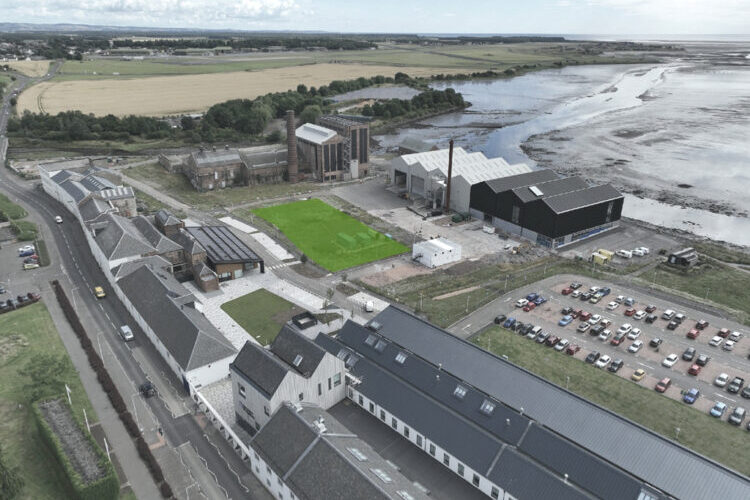St Andrews secures £2m green hydrogen funding

The University of St Andrews has been awarded a £2 million grant by the Wolfson Foundation to enable the development of green hydrogen technologies that will play a key role in decarbonising the energy and chemical industries.
The Green Hydrogen Accelerator will provide dedicated space for world-leading research into the efficient production of hydrogen from water and its use in energy storage and chemicals production.
The facility, plans for which have been submitted to Fife Council, will consist of an innovation hall, laboratory space and a fenced compound that will house a large-scale electrolyser for green hydrogen production and carbon capture units. The 400 square metre research facility will be built on part of the University’s Eden Campus, the former paper mill site at Guardbridge, located three miles from St Andrews.
The £13 million project is the next major step in the vision for the Campus, which will become the University’s living lab for innovation, with a range of facilities for the development of the next generation of low carbon technologies.
Derek Watson, University of St Andrews Quaestor and Factor said: “The Wolfson Foundation’s support is a seal of approval of the quality of the pioneering research which takes place in St Andrews. Now, more than ever, the world is looking for ways in which to combat the climate crisis, and our researchers at St Andrews are showing how hydrogen can be part of the solution to that challenge.”
Professor John Irvine, who leads on much of the University’s work around energy storage and hydrogen production, said: “The Green Hydrogen Accelerator will be hugely important in demonstrating how hydrogen can enable our future energy systems. It will provide us with essential research and development space to accelerate the development of these new technologies.”
Dr Paul Webb, whose work, known as Power to X, uses hydrogen as a basis for manufacturing fuels and chemicals, said: “To achieve Net Zero targets we must transition from the use of fossil fuels and explore new ways to integrate a future low carbon energy system with carbon recycle for chemicals production. The Green Hydrogen Accelerator will enable ground-breaking research into the production of energy, fuels and chemicals using only water, waste streams and components of air. There is even the potential for creating carbon negative processes that can offset the emissions of sectors more difficult to decarbonise.”
Paul Ramsbottom, Chief Executive of the Wolfson Foundation, said: “Urgent efforts are needed to decarbonise everyday energy, industry, and transport systems – and long-term success will hinge on high quality research and development in the next few years. We are delighted to be supporting this new infrastructure at St Andrews, which will accelerate the drive towards cleaner energy for Scotland and beyond.”
The Wolfson Foundation is an independent charity with a focus on research and education. Its aim is to support civil society by investing in excellent projects in science, health, heritage, humanities, and the arts.
Since it was established in 1955, some £1 billion (£2 billion in real terms) has been awarded to more than 12,000 projects throughout the UK, all on the basis of expert review. Twitter: @wolfsonfdn
Issued by the University of St Andrews Communications Office.